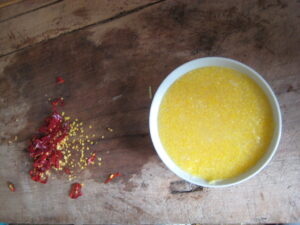In our third post in the “An Interview With..” series, we continue to introduce the ENPA team – it’s time to meet ENPA convenor, Anni Kajanus.
How do you define or understand psychological anthropology?
I came to psychological anthropology through intersections between anthropology and cognitive sciences. Over the years, I’ve learned about the richness of approaches and themes that go under the umbrella of psychological anthropology, from affect studies to critical approaches to psychoanalysis. In my understanding, psychological anthropology asks questions that cut across the psychological and cultural dimensions or human experience; and through critical engagements, brings anthropology to bear on psychology debates and vice versa.
What are you currently working on?
Broadly, I work on questions of human cooperation and conflict. Right now, I’m at the early stages of an ERC project on the emotion of irritation in cooperative relationships. Irritation is a pervasive feature of the human experience, something that plays a major role in relationships of many kinds. We may find ourselves irritated by strangers, of course, but also – and perhaps even more so – by those with whom we are close, e.g. our long-term partners, siblings and friends. I’m trying to understand why irritation is such a common, even constitutive, feature of our lives. What role does it play in relation to cooperation and morality? We are studying this in 5 countries, combining ethnographic and experimental approaches.


How will your research improve or have a wider impact on society?
Understanding how cooperation is maintained and what happens when it breaks down is important, considering that cooperation is critical to the survival and flourishing of our species, and life, in the broadest sense. How emotions are experienced in different cultural-historical settings will contribute towards a nuanced understanding of emotional and intimate lives. And at a more practical level, understanding why we get irritated, what we need this emotion for, and what are its mechanisms, helps to alleviate the psychosocial and social burdens it imposes on individuals and groups.
What is your favourite ethnography? Why?
I’d have to go back to the ethnographies I read as a student; they had a profound impact on me. I read great ethnographies all the time, but those first experiences of getting immersed in anthropological thinking and ethnography can never really be matched. I really loved Fruit of the Motherland: Gender in an Egalitarian Society, by Maria Lepowsky.
What do you do outside of research work?
Martial arts have always been a huge part of my life. I also spend much of my time laughing at puppy shenanigans with my kids.
About the Author

Anni is an Associate Professor of Social and Cultural Anthropology at the University of Helsinki, working at the interfaces between culture and cognition, morality and cooperation. Her regional focus is China, where she has worked on a range of topics including migration, one-child policy, gender, education, and child-development.
Her most recent research brings together methods and approaches from anthropology and psychology, for a comparative study of human social and cognitive development across cultural-historical contexts, including cooperative behaviours, morality, emotional life, etc. Currently Anni is leading two projects that investigate the role of irritation in human sociality, funded by ERC Starting Grant, and Academy of Finland. You can follow her on Twitter @AnniKajanus.

Leave a Reply